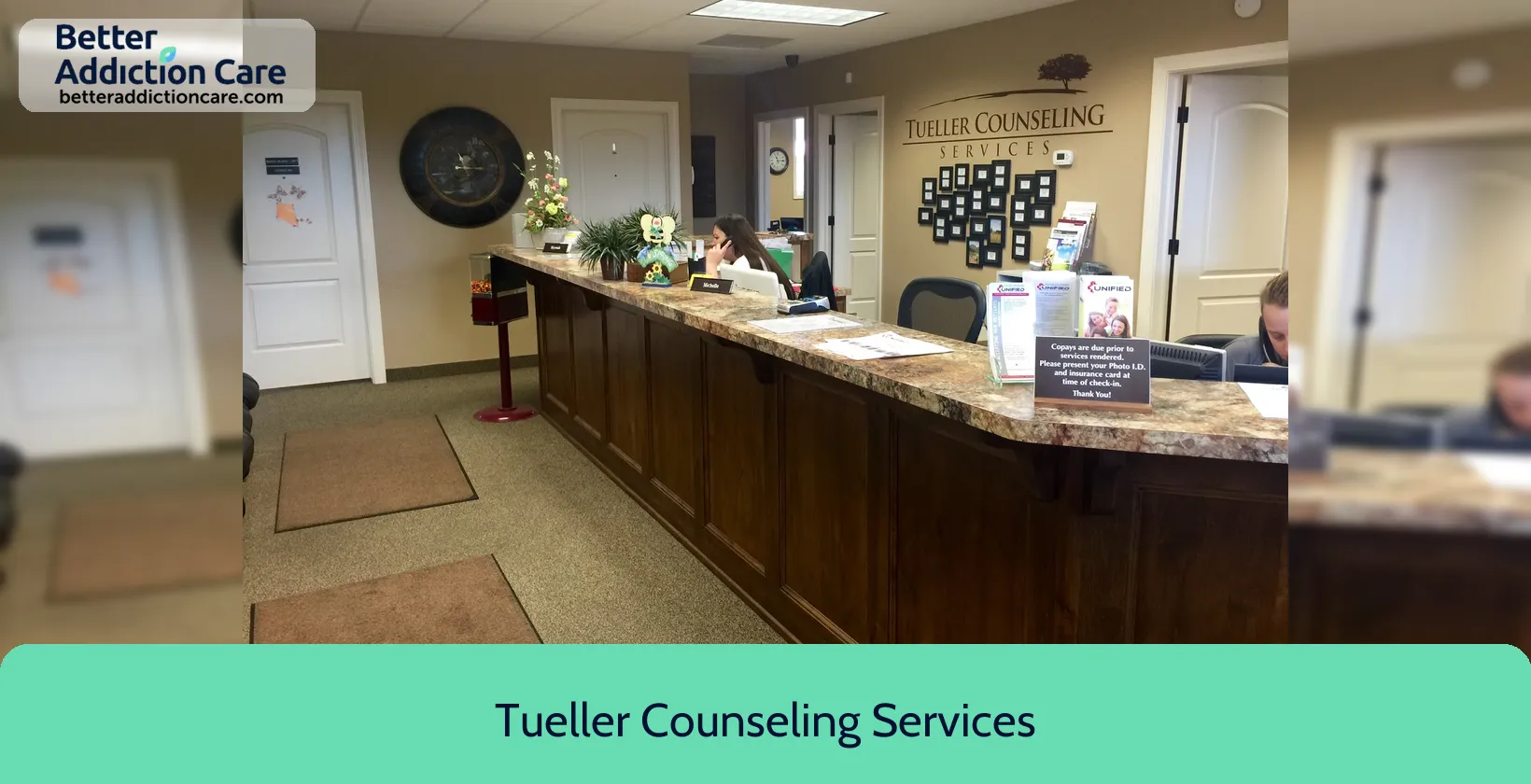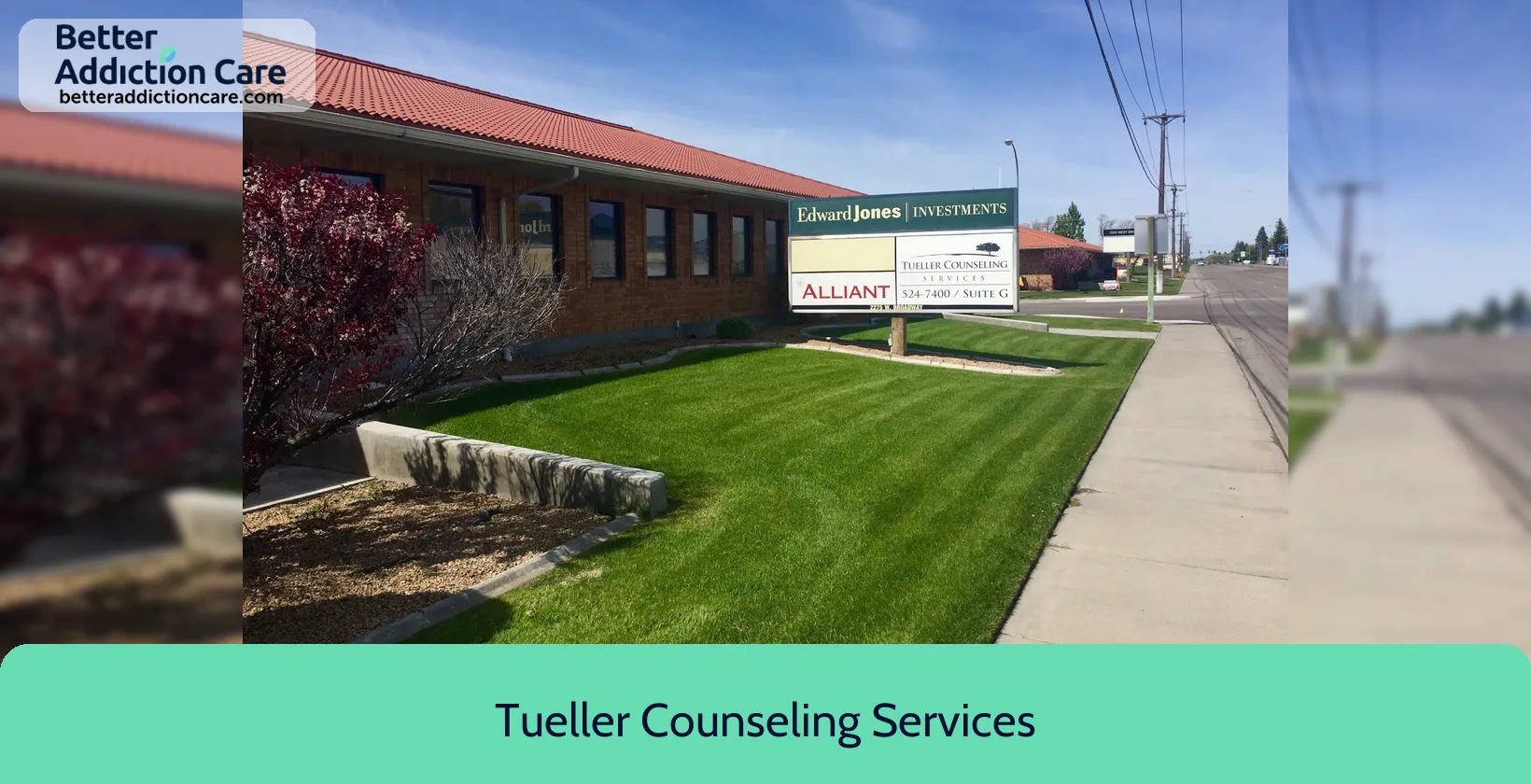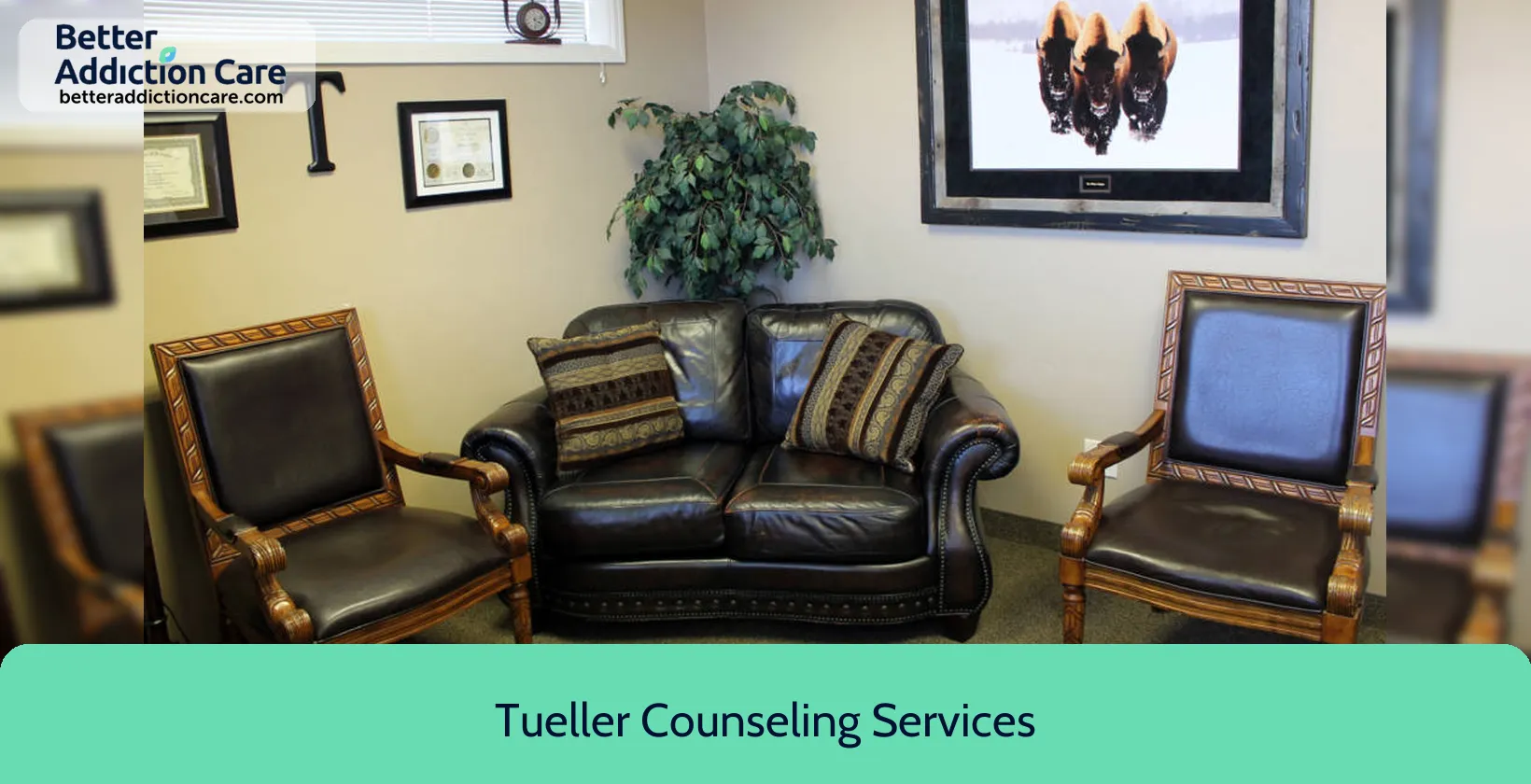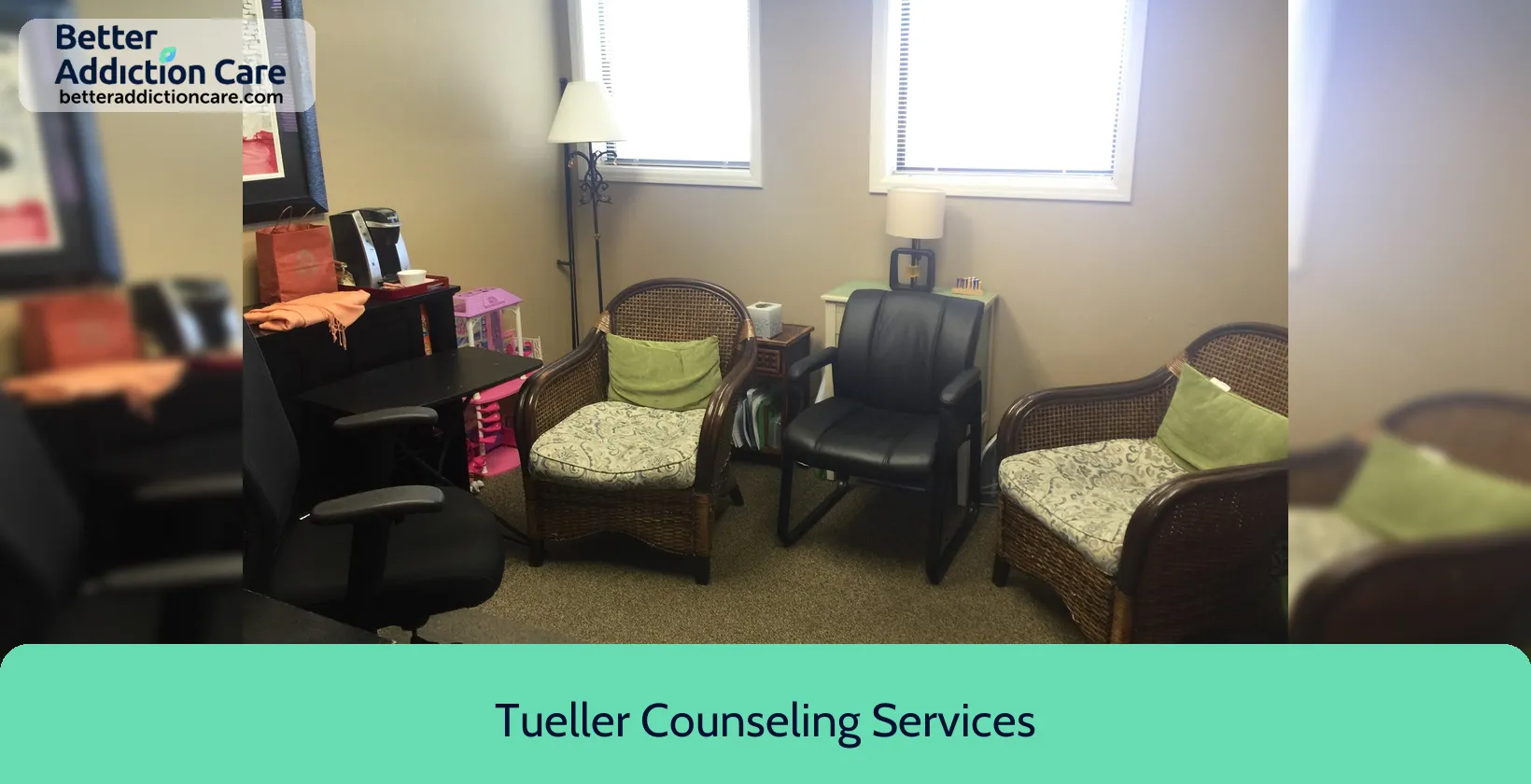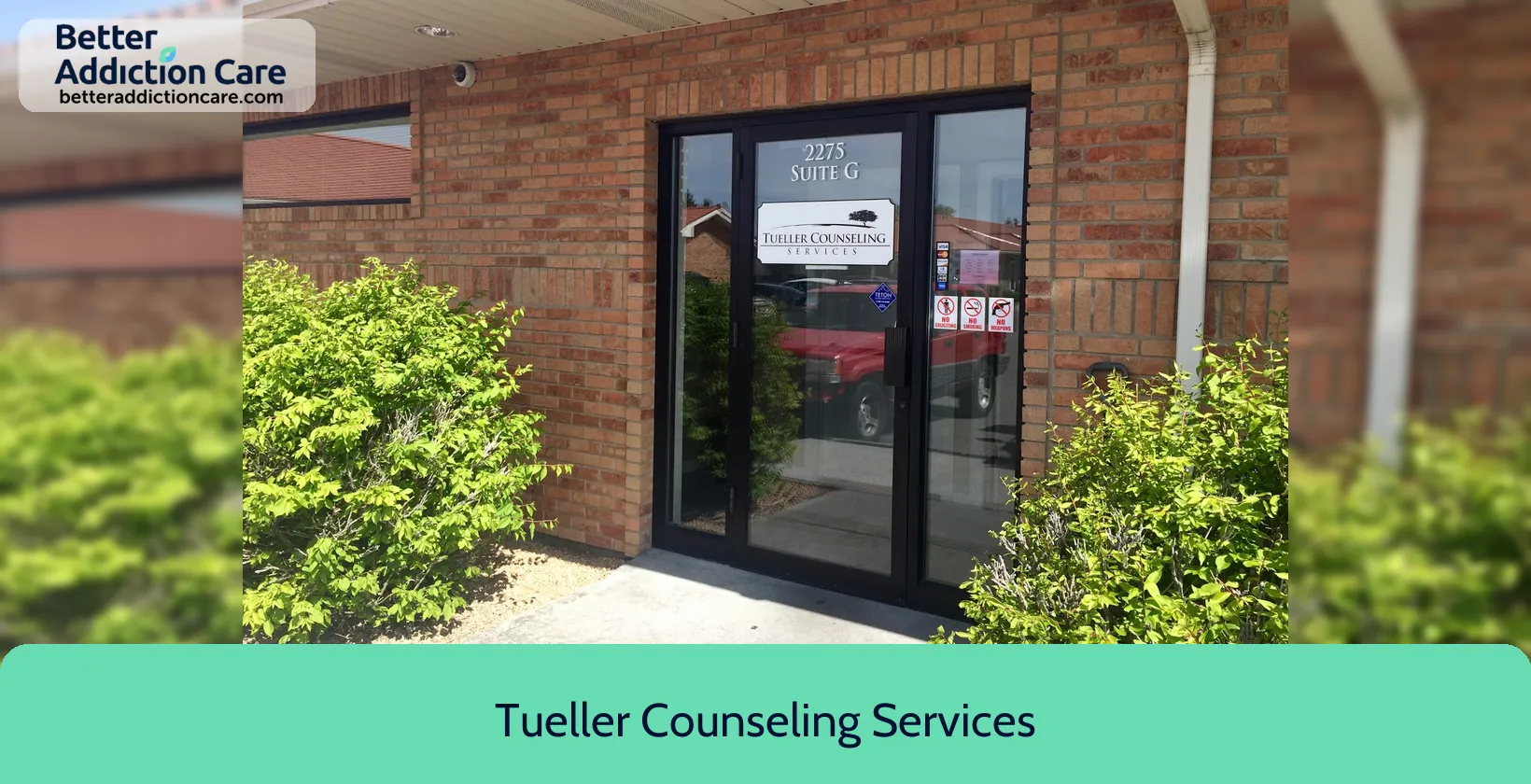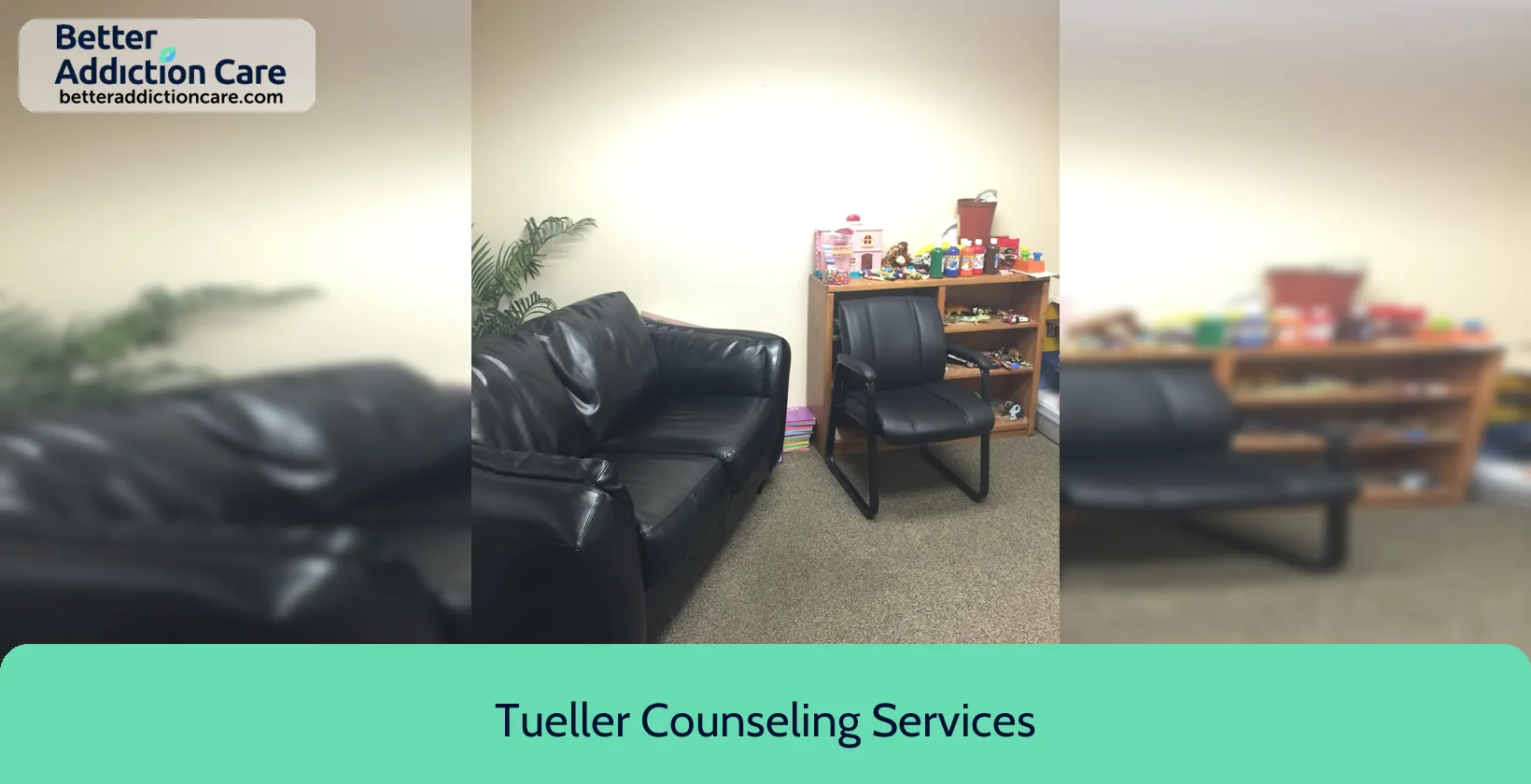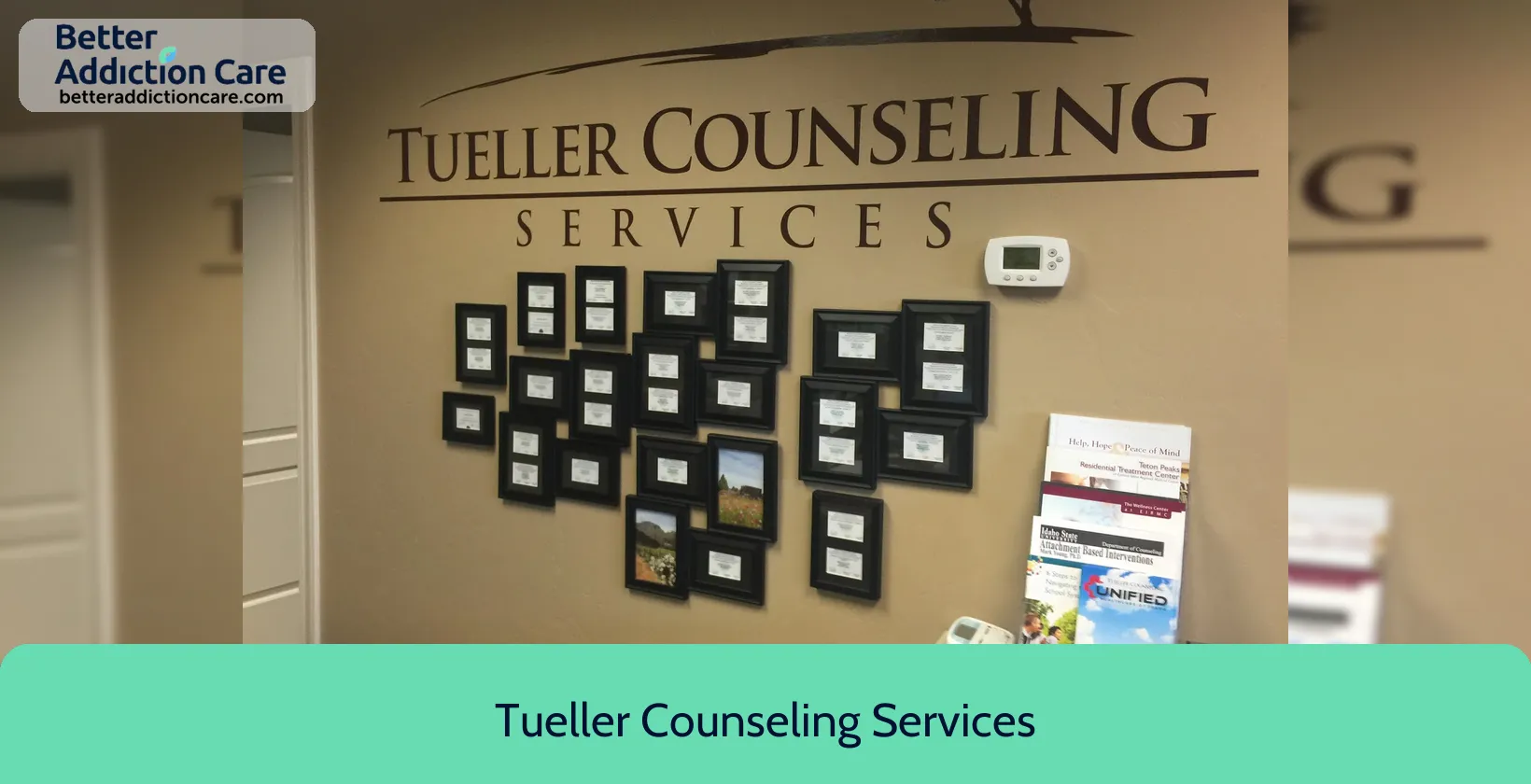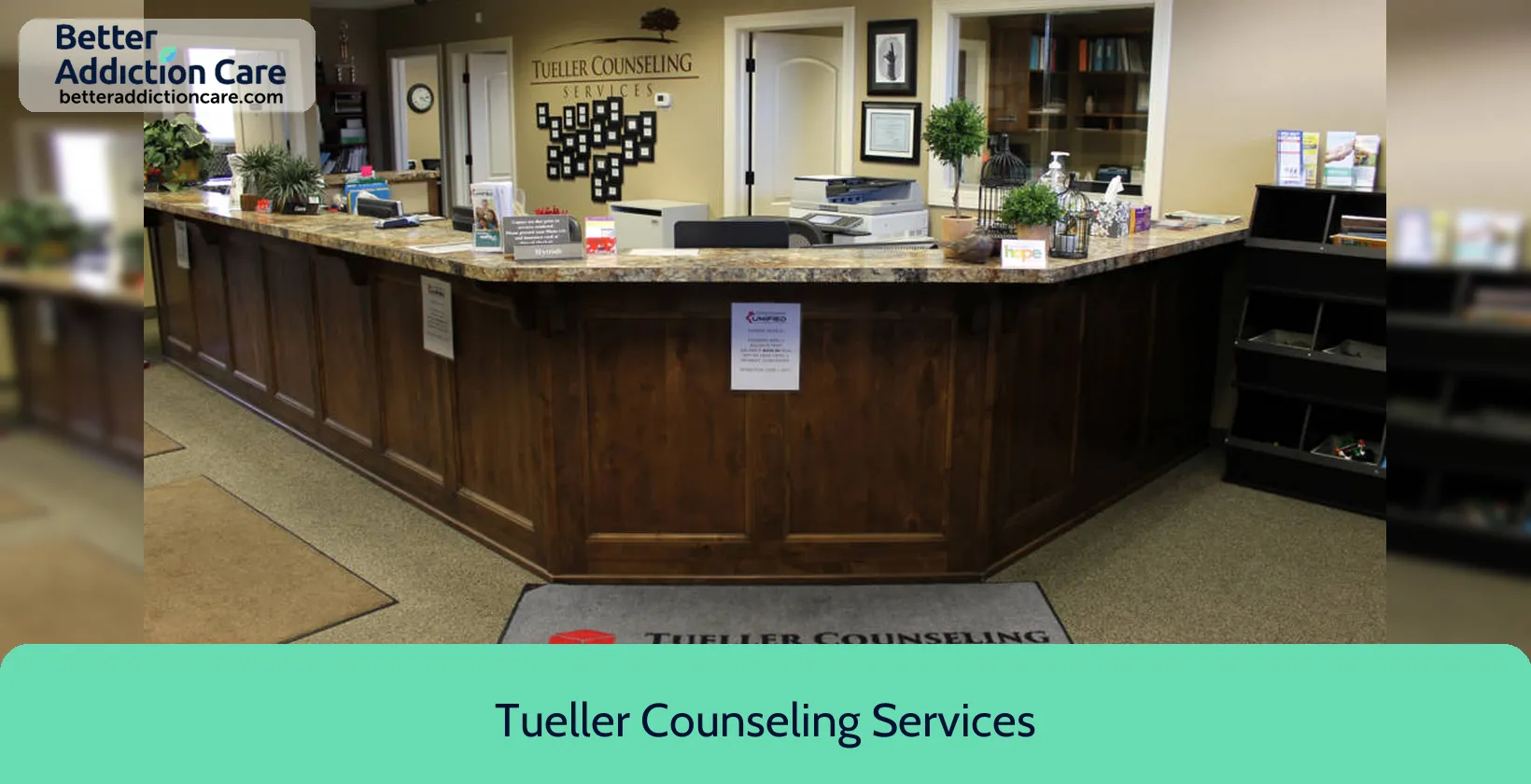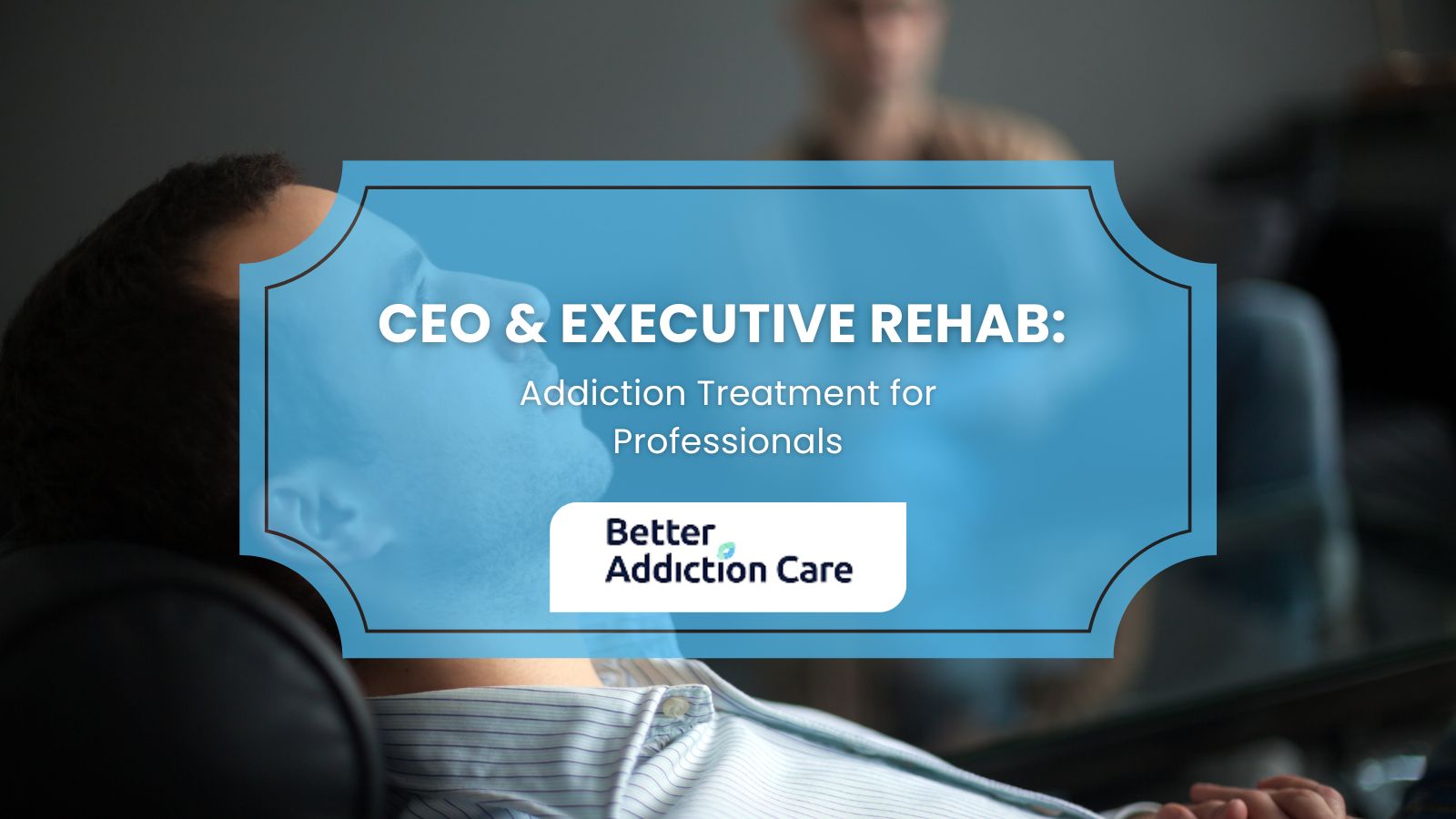Tueller Counseling Services
Overview
Tueller Counseling Services is a substance abuse treatment center for people seeking treatment near Bonneville County. As part of their treatment modalities for recovery, Tueller Counseling Services provides family counseling, individual psychotherapy, and cognitive behavioral therapy during treatment. Tueller Counseling Services is located in Idaho Falls, Idaho, accepting county or local government funds for treatment.
Tueller Counseling Services at a Glance
Payment Options
- County or local government funds
- Medicaid
- Other State funds
- Private health insurance
- State corrections or juvenile justice funds
Assessments
- Comprehensive mental health assessment
- Comprehensive substance use assessment
Age Groups
- Adults
- Children/adolescents
- Young adults
Operation
- Private for-profit organization
Highlights About Tueller Counseling Services
6.74/10
With an overall rating of 6.74/10, this facility has following balanced range of services. Alcohol Rehabilitation: 8.00/10, Drug Rehab and Detox: 6.00/10, Insurance and Payments: 6.00/10, Treatment Options: 6.97/10.-
Alcohol Rehabilitation 8.00
-
Treatment Options 6.97
-
Drug Rehab and Detox 6.00
-
Insurance and Payments 6.00
Treatment At Tueller Counseling Services
Treatment Conditions
- Mental health treatment
- Substance use treatment
- Co-occurring Disorders
- Alcoholism
- Opioid Addiction
Care Levels
- Outpatient
- Intensive outpatient treatment
- Detoxification
Treatment Modalities
- Family counseling
- Individual psychotherapy
- Cognitive Behavioral Therapy
- Dialectical Behavior Therapy
- Eating Disorder Treatment
Ancillary Services
Languages
- Spanish
Special Programs
- Children/adolescents with serious emotional disturbance (SED)
- Active duty military
- Persons with eating disorders
- Clients who have experienced trauma
- Clients with HIV or AIDS
Contact Information
Read our Most Recent Article About Drug Addiction
DISCLAIMER: The facility name, logo and brand are the property and registered trademarks of Tueller Counseling Services, and are being used for identification and informational purposes only. Use of these names, logos and brands shall not imply endorsement. BetterAddictionCare.com is not affiliated with or sponsored by Tueller Counseling Services.
